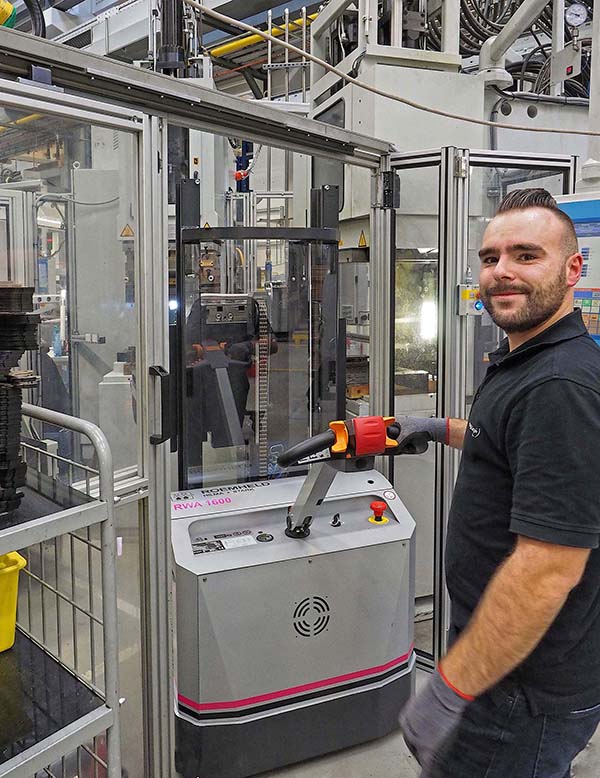Vehicle component manufacturer ElringKlinger, headquartered in Dettingen an der Erms, Germany, includes high-performance, lightweight plastic products such as oil pans and cam covers in its product portfolio for the global automotive industry.

Tobias Gerst, production engineer responsible for capital equipment procurement and process planning says: “Over the past few years we’ve grown steadily and are running out of space for our production equipment, so we’re sometimes faced with very cramped conditions.”
Space is particularly limited where two automated injection moulding machines operate over three shifts. The machines are located in an enclosure and mould exchange is only possible by entering a narrow, low door. These machines, positioned at an angle of about 120° to each other, require a mould change every 8-9 days. As there is no overhead crane in the factory, it is impossible to load the machines from above. Instead, until recently, operators used one of a number of standard transport carts – a challenging and physically exhausting task.
All that changed with the arrival of a compact transport cart supplied by Roemheld. The RWA 1600 is characterised by its small size, an electro-hydraulic lifting platform and a shuttle table equipped with hydraulically actuated ball bars. In addition, Roemheld can customise the carts to meet specific requirements.
With ball bars set into the support surface of the table, it is easy to move the dies manually in any direction. A special safety mechanism ensures that, during mould transportation, the ball inserts lower into the table surface so the die cannot move.
As standard, Roemheld offers three versions of the 1600 kg capacity cart with either four, six or eight ball bars. After detailed consultation, however, Gerst asked ElringKlinger to produce a special version with nine bars.
For further information
www.roemheld.co.uk














